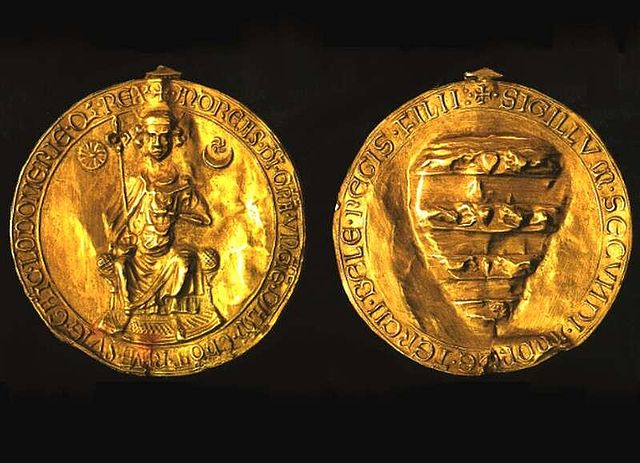The Golden Bull of 1222 was a golden bull, or edict, issued by Andrew II of Hungary. King Andrew II was forced by his nobles to accept the Golden Bull (Aranybulla), which was one of the first examples of constitutional limits being placed on the powers of a European monarch. The Golden Bull was issued at the year 1222 diet of Fehérvár. The law established the rights of the Hungarian nobility, including the right to disobey the King when he acted contrary to law. The nobles and the church were freed from all taxes and could not be forced to go to war outside of Hungary and were not obligated to finance it. This was also a historically important document because it set down the principles of equality for all of the nation's nobility. Seven copies of the edict were created, one for each of the following institutions: to the Pope, to the Knights Templar, to the Knights Hospitaller, to the Hungarian king itself, to the chapters of Esztergom and Kalocsa and to the palatine.

The golden seal that earned the decree the name
Golden Bull of 1222
A golden bull or chrysobull was a decree issued by Byzantine emperors and monarchs in Europe during the Middle Ages and Renaissance.
Imperial chrysobull of Alexios III of Trebizond, 1374
The gold seal of the Golden Bull of 1356 issued by Holy Roman Emperor Charles IV




